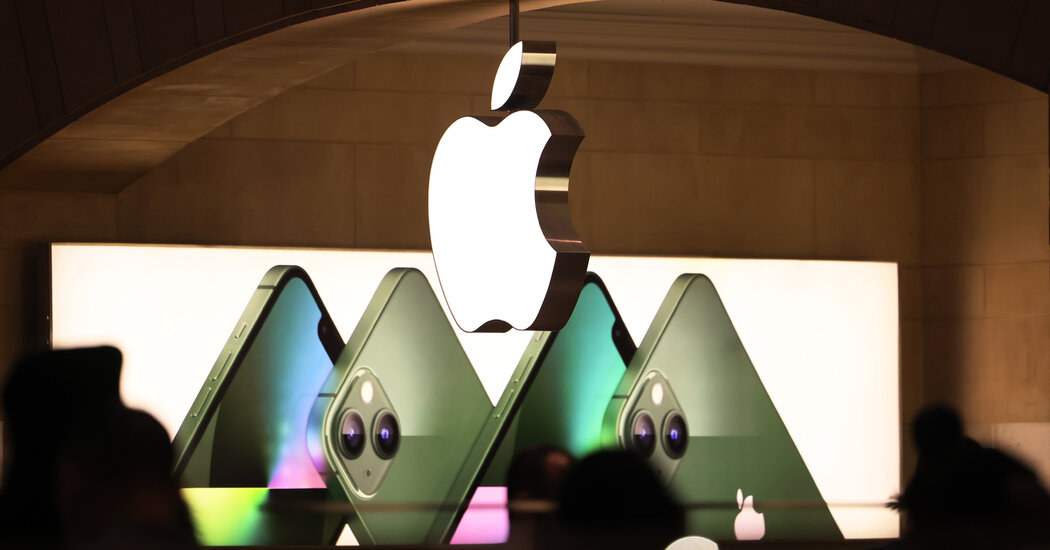After a year of lightning-quick revenue growth, Apple showed it is a more resilient business than many of its tech peers, though it cooled in the first three months of the year.
The company reported Thursday that profits are up 6 percent to $25 billion in the second fiscal quarter, a double-digit growth slowdown in each of the previous five quarters† Revenue rose 9 percent to $97.29 billion, exceeding analyst expectations as pandemic-fueled purchases of iPads and Macs slowed from a year earlier.
Apple CEO Tim Cook warned investors ahead of the coming months, telling Wall Street analysts that an accelerating Covid outbreak in China will reduce demand and hurt production of iPhones, iPads and Macs. He said supply chain issues are expected to reduce revenue by $4 billion to $8 billion in the current quarter.
“I think we’re doing a decent job navigating a challenging environment right now,” said Mr. Cook, noting that “almost all” of the factories Apple relies on in the Shanghai region have resumed production.
Shares of the company fell about 4 percent in after-hours trading, forcing much of Apple’s profits earlier in the day.
The results added to a week of uneven financial reports from leading tech companies that have struggled to sustain last year’s explosive growth. Google’s parent company, Alphabet, and Facebook’s parent company, Meta, had reported declines in earnings from a year earlier, while Microsoft posted an increase in earnings.
The pandemic is a double-edged sword for Apple. School and remote work boosted demand for computing devices, and government stimulus and cuts in travel and leisure spending shocked the company’s all-important iPhone business, analysts said. But those same forces created problems in the supply chain, leading to a global chip shortage that has cost Apple billions of dollars in lost sales.
In addition to highlighting the challenges it faces in China, Apple said total sales will shrink in the current quarter due to its decision to stop selling products in Russia due to the invasion of Ukraine. Apple is counting on Russia for 1 percent of its sales and a slightly larger percentage of its profits, analysts estimate.
During the January to March quarter, sales of iPhones, iPads and other devices rose 6.6 percent to $77.5 billion, Apple said.
The bigger problem for Apple could come in the coming months as economic tensions from the war in Ukraine spill over into Europe, said Gene Munster, a longtime Apple analyst and managing partner at venture capital firm Loup Ventures. “People are on edge,” he says. “They pay more for fuel. If you live in Germany, does that affect your decision to buy the next iPhone?”
To diversify beyond just selling appliances, Mr. Cook an increasing array of software and services spanning Apple products around the world. Last year, people secluded at home were wasted on apps, video games, and subscriptions like HBO Max. But amid the return to work and school, Apple said, revenue growth in its so-called services business slowed, posting $19.82 billion in revenue. revenue during the quarter†
The company said it would increase its cash dividend to shareholders by 5 percent and increase its share buybacks by $90 billion.

